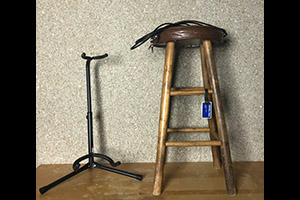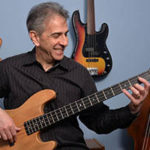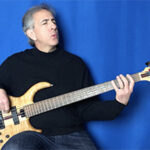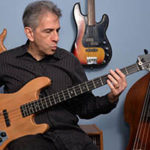Would we be noticed more in our absence than we are in our presence?
By Jon Liebman
Week of May 3, 2021
What if there was no bass? What would music sound like? Thin, no bottom, and “grooveless” are among the words that immediately come to mind.
I got to thinking about the concept in reading this week’s FBPO interview with Beatles inner circle member Klaus Voormann, in his conversation with Gary Graff.
Sometimes a thing is more obvious by its absence than its presence. The bass is often thought of as a “background” instrument, but, in my estimation, that couldn’t be farther from the truth. As bass players, we set the foundation for the band, we make the music groove.
Where would they be without us?
Reading Voormann’s perspective on the matter was enlightening. Having laid down bass tracks for three of the Beatles, not to mention the likes of Peter Frampton, Carly Simon, and B.B. King, Klaus knows a thing or two about the role of the bass.
The German-born “honorary Beatle” didn’t set out to play bass, at first. “I didn’t even think of playing in a band,” he says, “or being professional on stage or anything.”
Klaus’ first instrument was classical guitar. “Then suddenly,” he says, “a friend of mine from Hamburg called me to play bass, so I was in a band and I was playing bass.”
From that point on, there was no turning back. “I could’ve played the piano or the guitar,” Voormann says, “but I always played the bass.”
The more he got into it, the more he appreciated the importance of the instrument, and the more discerning he became about the role the bass player is called upon to serve.
“It’s interesting,” he says, “because I never really thought about it ’til I listened to tracks when the bass is not there. And if the bass is not there, it suddenly gets very empty.”
Now we’re talking!
“I know lots of records where I hate the bass,” says Klaus. “It’s too busy or the notes are too bassy. I like bass when it really fits together with the rhythm section. That to me is really important.”
If you ever get discouraged while you’re learning bass, or if you feel like you’ve been relegated to the background, try to imagine what the music would sound like without the bass.
It doesn’t matter whether others realize the importance of the bass or not. We know.
And it doesn’t have to be “1-5, 1-5” all the time either (not that there’s anything wrong with that!). “If it’s necessary and there’s space for it,” Klaus says, “I like it when it’s melodic, too.”
Have a thought on the subject? Leave a comment below and let me know what you think. In the meantime, check out Gary’s interview with Klaus here.






I completely agree with they only miss us when we aren’t there.
Many times I have gotten “the look” if I drop out of the mix.
Sometimes on purpose in order for the music to breath, but it still has the same affect. They don’t even know what you are doing till you aren’t doing it and that gets there attention 🙂
Jazz and funk would be mighty thin without the bass. Also pop music, movie scores, and most folk music. Drummers would miss the support, and percussion would be reduced to rattles and snake tails and dried fruit. What a nightmare we have avoided, happily providing chordal and rhythmic support, in exchange for a paycheck, with luck a free beer. And it should be noted that we often have heavy gear, so are most likely to help tote that old Hammond B3 (meanwhile, that cute singer is off talking to fans…). When it comes down to it, bass contains the fundamental tags and directions of a song, frequently cluing changes, supporting and often instructing the direction of a song or jam. While the other players worry about decorating the song, the bass makes sure there is a song worthy of decoration. The bass was inevitable, and I am glad to be a bassist.